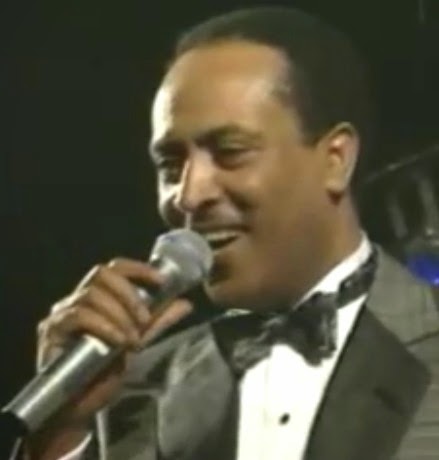Michael Belayneh - Ashenefe
Michael Belayneh is an Ethiopian Singer/Songwriter with a unique voice color.
Michael Belayneh was born and raised in Addis Ababa, Ethiopia. After completing his high school studies he went to Bahir Dar Polytechnic Institute and graduated with an Advanced Diploma in Industrial Electricity. Michael furthered his studies by attending Political Science and International Relations (PSIR) at Addis Ababa University and acquired a BA degree.
Music, for Michael, has always been a passion to live for. While attending formal education at AAU, he also started taking Piano lessons at Yared Music School with a private tutor, on a part time basis. There, he confirmed his talent for music particularly for singing. He later joined Medina Band as a part time English song singer. In those years, he has been playing at various night clubs in town with Medina and Express bands.
Michael took his talent to different stages, one of which was Concorde Piano Bar. There, he played with the renowned bar pianist, the late Getachew Degefu along with saxophonist Abebe Kassa. He has been playing American standard songs of the 50s and 60s singer’s like Nat King Cole, Frank Sinatra, Ray Charles, and many more. And also he started playing the Ethiopian music ‘Golden Years’ songs of Bahta Gebrehiwot, Getachew Kassa, Girma Beyene, Seifu Yohannes, Teshome Mitiku. His Concorde times made him realize his capacity to entertain an audience with his singing skills only to assert the very truth that he was born to live music.
His connection with piano made him to enter in to a project called MELEYA KELEME by the year 2003 with the Ethiopian classical pianist Girma Yifrashewa and Poet/Playwright/Artist Getnet Eniyew, later to produce piano vocal album, may be the first in its kind in Ethiopia. At this juncture, Michael decided to make music his life career.
In 2003, Michael started producing his own solo album project with Elias Melka. While producing this album, he released his first single, the remake of Getachew Kassa’s song called Sayish Esasalehu. He also took part in many HIV awareness projects as a songwriter taking the nature of HIV songs in to a new direction by making them more loved and audible. The songs include Malebabes Yikir, Mela Mela, Melli Harr’a [Oromiffa], Metamen Mamen and many more.
By year 2005, his debut album called ANTE GODANA was published by the popular music publisher, Electra. This album brought Michael closer to the larger audience. The album was a huge success as it catches the hearts of music lovers in a slow but subtle way. The tracks in ANTE GODANA are deeply driven by positivity and relaxing vibes. Such songs include Siqe Eshegnishalehu, Etebikishalehu, and Yefikir Mirchaye; the most loved romantic song to date.
Tizita, a slow rock single, released in 2010, after a brief pause in his musical activity due to unexpected engagements of life. Tizita was a success as the music and lyrical approach was out of the usual Tizita context.
After a long absence, Michael produced and delivered the very outstanding album, NAFKOT ENA FIKIR [meaning NOSTALGIA & LOVE in Amharic] in 2012/13. Nafkotena Fikir is unique in its presentation that it gave a chance to the young talents of Ethiopian music both in arrangement and lyrics. Gebrekristos Desta’s forty year old classic love poem SIWEDISH has also been made to be one timeless romantic song.
The album is named as ‘Album of the Year' by Sheger FM 102.1 Leza Radio Show public votes. The album still dominates the air with its sweet sounds.
Michael Belayneh vows to deliver his next masterpiece album by the end of 2014.
01 - Michael Belayneh - Bemar (4:20)
02 - Michael Belayneh - Ashenefe (4:12)
03 - Michael Belayneh - Sewedesh (5:34)
04 - Michael Belayneh - Kal Neberen (6:22)
05 - Michael Belayneh - Anchi Yelelesh Gize (5:00)
06 - Michael Belayneh - Saynegrush (4:57)
07 - Michael Belayneh - Senewaded (4:05)
08 - Michael Belayneh - Afajeshigne (4:43)
09 - Michael Belayneh - Afkirash (4:26)


















